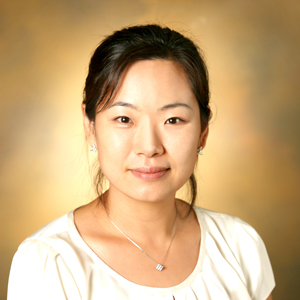
The Gastric Cancer Foundation has awarded a one-year $100,000 research grant to Eunyoung Choi, PhD, assistant professor of Surgery in the Section of Surgical Sciences, to support her efforts to find a way to disrupt the transformation of dysplastic stem cells into stomach cancer.
The award was one of two grants announced last month by the California-based foundation to support ‘early- and mid-stage career scientists who have novel ideas for treating gastric cancer.” The disease is predicted to kill 11,000 people in the United States this year.
Choi joined the Vanderbilt faculty in 2014.
In June, she and her colleagues reported that they had identified a population of dysplastic stem cells present during the transition from pre-cancerous metaplasia to dysplasia in mouse and human stomachs. Dysplasia is a precancerous condition of the stomach that has an 80% chance of progressing to gastric cancer.
In a separate initiative, Choi and James Goldenring, MD, PhD, the Paul W. Sanger Professor of Experimental Surgery, received a five-year, $5-million award this year from the National Cancer Institute to define how tumor-initiating cells drive the progression of metaplasia ultimately to adenocarcinomas in the stomach and gastroesophageal junction.
Also in June, she received the two-year, $100,000 R. Robert and Sally Funderburg Research Award in Gastric Cancer from the charitable arm of the American Gastroenterological Association to study the biological functions of an oncogenic gene in gastric cancer development.
The grant from the Gastric Cancer Foundation will enable Choi to examine whether inhibiting an enzyme called SCD1, which regulates fatty acid metabolism, can prevent progression to cancer in mice with gastric dysplasia. Choi also plans to study SCD1 inhibition in human models of gastric dysplasia.
Choi said the grant was a “bridge” that could lead to longer-term funding of her research. “There are many patients suffering with this cancer in the world,” she said in a news release. “I’m honored and excited to have this opportunity to help them.”












